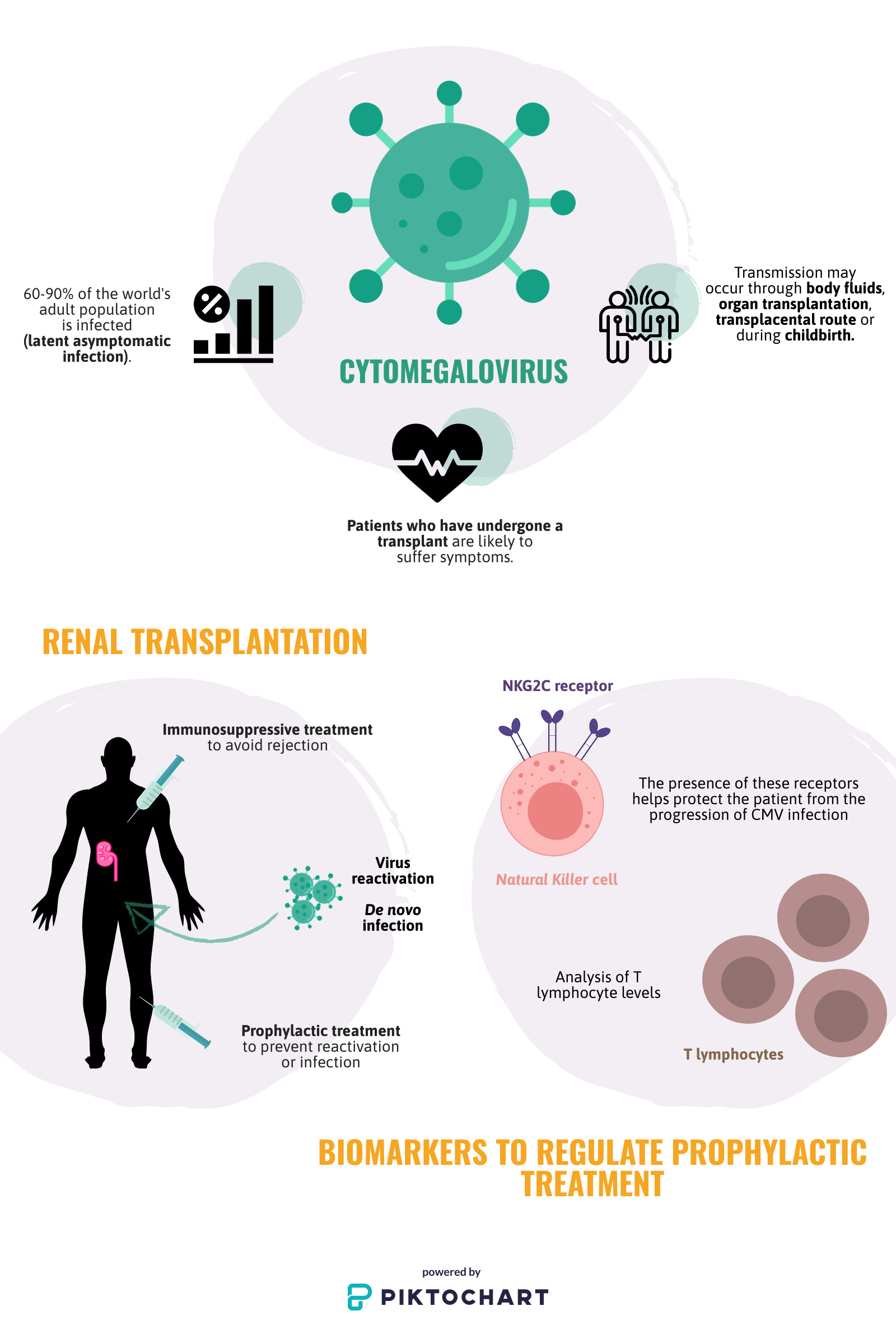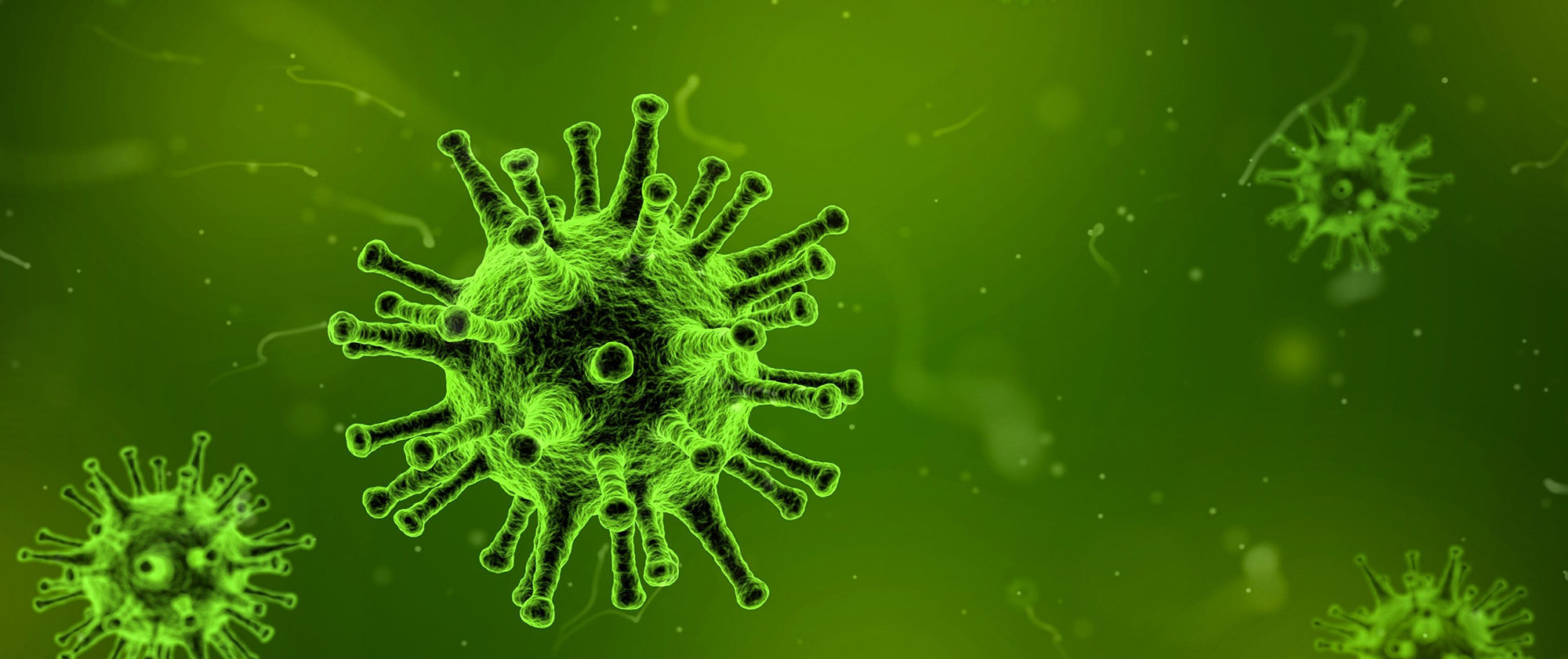Cytomegalovirus (CMV) infection is a pathology of high prevalence. Although 60-90% of the adult world population is infected, it is a latent and asymptomatic infection. However, people who have undergone a transplant are susceptible to present symptoms, as they have been given an immunosuppressive treatment to prevent rejection which weakens their immune system. Consequently, de novo infection or virus reactivation, if patients were already infected, can occur.
Studies conducted by the Hospital del Mar and the Hospital del Mar Medical Research Institute (IMIM) confirm that CMV infection affects up to 30% of patients during the 6 months following the transplant. In these cases, finding infection risk biomarkers that are easily detectable is of great importance, since this infection has also been linked to other long term problems – like trasplant rejection or cardiovascular problems. In fact, there is already a conventional marker, based on the analysis of T lymphocytes.
Recently, a team of doctors from Hospital del Mar and IMIM research staff have described a new biomarker, which could complement the analysis of T lymphocytes: the presence of NKG2C receptors in Natural Killer cells helps to protect patients from the progression of CMV infection. The presence or abscence of these receptors could help decide which patients need the preventive treatment.

Michelle Ataya, Dolores Redondo-Pachón, Laura Llinàs-Mallol, José Yélamos, Gemma Heredia, María J. Pérez-Sáez, Joan Vila, Marcel Costa-García, Dàlia Raïch-Regué, Carlos Vilches, Julio Pascual, Marta Crespo, Miguel López-Botet. Pretransplant adaptive NKG2C+ NK cells protect against cytomegalovirus infection in kidney transplant recipients. Am J Transplant. 2019; 00: 1- 14. https://doi.org/10.1111/ajt.15658







